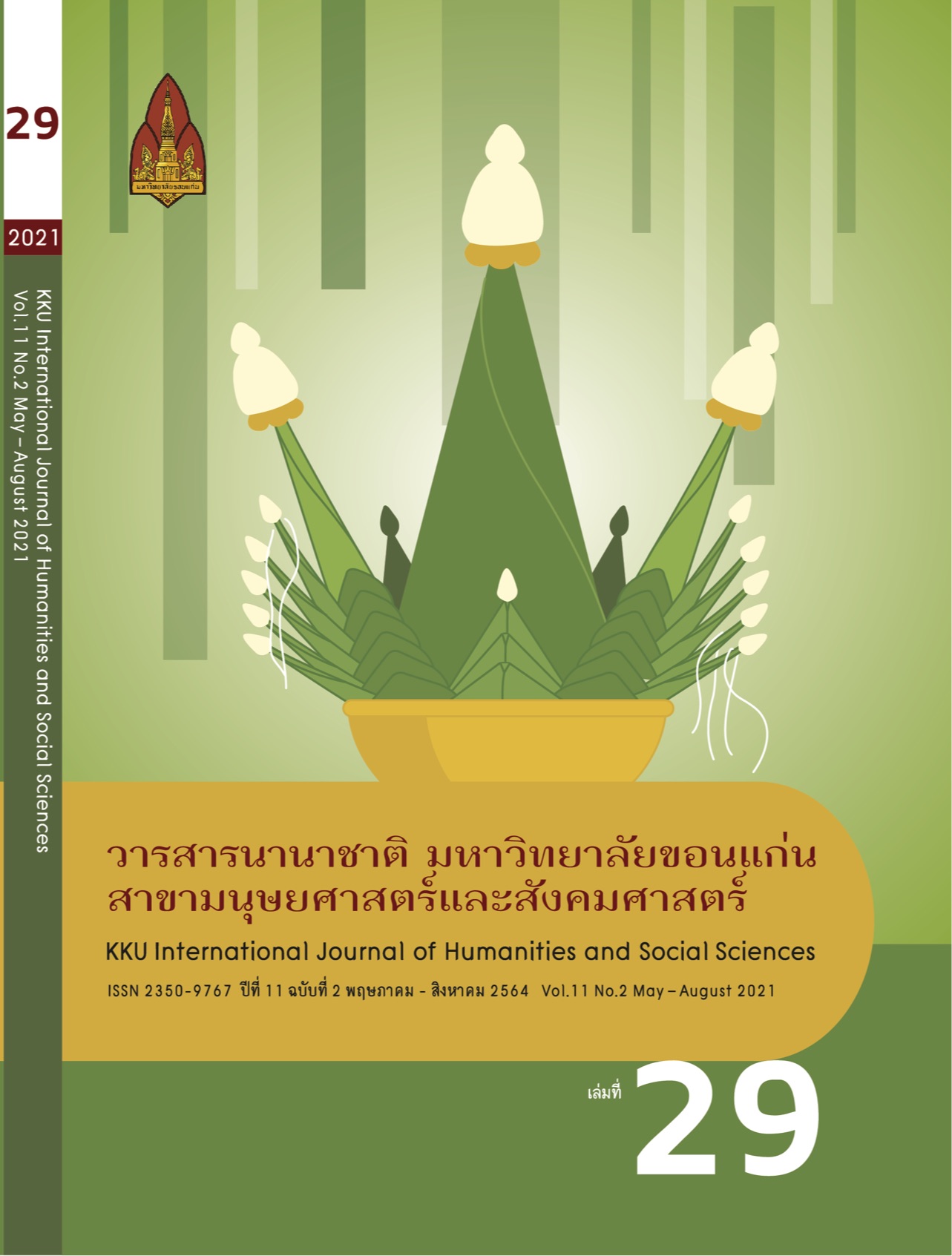Genre Analysis of Research Article Abstracts in Language Education and Acquisition Research
Main Article Content
Abstract
Despite the fact that a number of studies have been investigated on different sections of Research Articles (RAs) in applied linguistics and language education, scant attention has been paid to the abstracts published in some leading journals in language education in Thailand. To fill the gap, this paper analyses the move structure and the micro structure of article abstracts in language education and acquisition published in the leading journal in language education and acquisition in Thailand. The data employed in this paper consists of sixteen abstracts published in the aforementioned journals. Importantly, Hyland’s (2000) five-move framework and Swales and Feak’s (2009) model are used as a framework for analysis. The findings revealed that two moves (purpose and product) are most-frequently included in the abstracts, while the other three moves (introduction, method, and conclusion) are not included in some abstracts. Concerning the variables, most of the abstracts contain less than 150 words, use present verbs and some acronyms whereas only few abstracts contain citations and 1st person pronouns. This study will be beneficial for novice scholars as it helps them produce academic papers following the norms and develop research writing skills within the field of language education and language acquisition.
Article Details
References
Alhuqbani, M. N. (2013). Genre-based analysis of Arabic research article abstracts across four disciplines. Journal of Educational and Social Research, 3(3), 371.
Askehave, I., & Swales, J. M. (2001). Genre identification and communicative purpose: A problem and a possible solution. Applied linguistics, 22(2), 195-212.
Bhatia, V. K. (1993). Analysing Genre: Language Use in Professional Settings. London: Longman.
Bhatti, I. A., Mustafa, S., & Azher, M. (2019). Genre Analysis of Research Article Abstracts in Linguistics and Literature: A Cross Disciplinary Study. International Journal of English Linguistics, 9(4).
Bondi, M., & Sanz, R. L. (Eds.). (2014). Abstracts in Academic Discourse. Bern: Peter Lang.
Çandarlı, D. (2012). A cross-cultural investigation of English and Turkish research article abstracts in educational sciences. Studies about languages, (20), 12-17.
Hyland, K. (2003). Genre-based pedagogies: A social response to process. Journal of second language writing, 12(1), 17-29.
Hyland, K. (2004). Disciplinary discourses, Michigan classics ed.: Social interactions in academic writing. University of Michigan Press.
Hyland, K. (2009). Academic discourse: English in a global context. A&C Black.
Hyland, K., & Tse, P. (2004). Metadiscourse in academic writing: A reappraisal. Applied linguistics, 25(2), 156-177.
Kanoksilapatham, B. (2015). Distinguishing textual features characterizing structural variation in research articles across three engineering sub-discipline corpora. English for Specific Purposes, 37, 74-86.
Kosasih, F. R. (2018). A Genre Analysis of Thesis Abtracts at a State University in Banten. Lingua Cultura, 12(1), 9-14.
Li, Y. (2011). A genre analysis of English and Chinese research article abstracts in linguistics and chemistry (Doctoral dissertation, Sciences).
LITU. (2019, December). LEARN Journal: Language Education and Acquisition Research Network. Retrieved from https://www.tci-thaijo.org/index.php/LEARN/index.
Martín-Martín, P. (2005). The rhetoric of the abstract in English and Spanish scientific discourse: A cross-cultural genre-analytic approach (Vol. 21). Peter Lang.
Pho, P. D. (2008). Research article abstracts in applied linguistics and educational technology: A study of linguistic realizations of rhetorical structure and authorial stance. Discourse studies, 10(2), 231-250.
Samraj, B. (2014). 14. Move structure. Pragmatics of discourse, 3, 385.
Swales, J. (1990). Genre analysis: English in academic and research settings. Cambridge University Press.
Swales, J. M. (2011). Aspects of article introductions (No. 1). University of Michigan Press.
Swales, J. M., & Feak, C. B. (2009). Abstracts and the writing of abstracts (Vol. 2). Michigan Series in English for.
Van Bonn, S., & Swales, J. M. (2007). English and French journal abstracts in the language sciences: Three exploratory studies. Journal of English for Academic Purposes, 6(2), 93-108.
Yakhontova, T. V. (2003). English academic writing for students and researchers. Lviv: PAIS.


